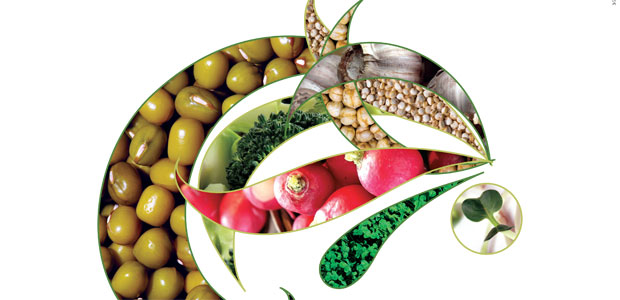Advertisement
Sprouts
Living local food

If you aim to live a long, healthy life, consider including living foods in your diet. One of the easiest ways to do this is to eat sprouts. These greens are as fresh and alive as a food can get, and they are chock full of nutrients.
When seeds, grains, or beans begin to sprout, their vitamin and mineral content multiplies, and they burst forth with an abundance of enzymes and other healthy plant chemicals that can detoxify, rejuvenate, and nourish our tired, toxic bodies. Best of all, when you eat fresh sprouts, their vital force is still intact.
Health-Boosting Sprouts
The nutrients and phytochemicals in sprouts are multiplied and potentized, making the sprouts of plants with known health benefits even more effective at fighting disease than the mature plants. This was demonstrated in a study conducted at Johns Hopkins University in 1997, which identified broccoli sprouts as an exceptionally rich source of inducers of enzymes that protect against chemical carcinogens.
Sprout Cuisine
Sprouts are easy to incorporate into the diet. They add nutrition, crunch, and flavour to salads, soups, sandwiches, and main dishes. Popular varieties such as alfalfa, radish, and mung bean are readily available for purchase. Some health food stores offer a larger selection, as well as options for placing special orders with local suppliers. Most health food stores also sell organic seed that you can sprout at home to grow your own living food.
Homegrown Sprouts—the Ultimate Local Food
Health-conscious consumers are rediscovering the value of locally grown foods, but finding a variety of them year-round can be a challenge. Homegrown sprouts are the answer. Whether you live in the country or in a city high-rise, you can grow fresh sprouts in your kitchen cupboard. With basic sprouting equipment, seeds, water, and air, you can grow your own fresh, organic, local food any time of the year, for just pennies a day.
You can grow sprouts in a jar, a tray, a bag, or with one of the sprouting kits and accessories available in natural food stores, where you’ll also find a selection of excellent books on the subject.
Sprouts In a Jar
One of the simplest and most popular sprouting containers is a 2 qt (2 L), wide-mouth glass jar. A Mason jar is best since you can replace the lid with a square of plastic mesh cloth, available at hardware stores. The mesh allows air to circulate.
Measure the appropriate quantity of seeds, pick through the seeds for stones and debris, and then rinse in cold water until all impurities have flushed away. Drain well and soak for eight to 10 hours. Drain the soaking water and rinse again. Be sure all the rinse water has drained to prevent risk of bacterial growth. Place the jar in the dark, ideally in your kitchen cupboard.
Over the next several days, rinse and drain your sprouts at least a couple of times each day (see chart for specific number of rinses). If you are growing alfalfa or other green sprouts, remove the jar from the cupboard and place in natural or artificial light on the last day or two of sprouting (see chart) to allow the sprouts’ chlorophyll content to develop. Refrigerate finished sprouts to keep them fresh and to prevent growth of Salmonella and E. coli bacteria.
| Type of Sprout | Amount of Seed | Daily Rinses | Days to Maturity |
| alfalfa | 2 Tbsp [30 mL] | 2 to 3 | 5 to 7 |
| broccoli | 3 Tbsp [45 mL] | 2 to 3 | 6 to 8 |
| chickpea | 2 cups [500 mL] | 3 to 4 | 4 to 5 |
| clover | 2 Tbsp [30 mL] | 2 to 3 | 4 to 7 |
| garlic | 2 Tbsp [30 mL] | 3 to 4 | 10 to 15 |
| mung bean | 1 cup [250 mL] | 3 to 5 | 4 to 5 |
| quinoa | 1 cup [250 mL] | 2 to 3 | 3 to 4 |
| radish | 2 Tbsp [30 mL] | 2 to 3 | 5 to 7 |
Sprouting Tips
- Sprouts need air as they grow. Ensure good air circulation by using wide-mouth jars with well-ventilated lid screens.
- Drain well after each rinse to discourage bacterial growth.
- Store growing sprouts at room temperature; avoid excessive cold or heat, and keep out of direct sunlight.
- Caution: make sure you wash sprouts very carefully to avoid contamination.




